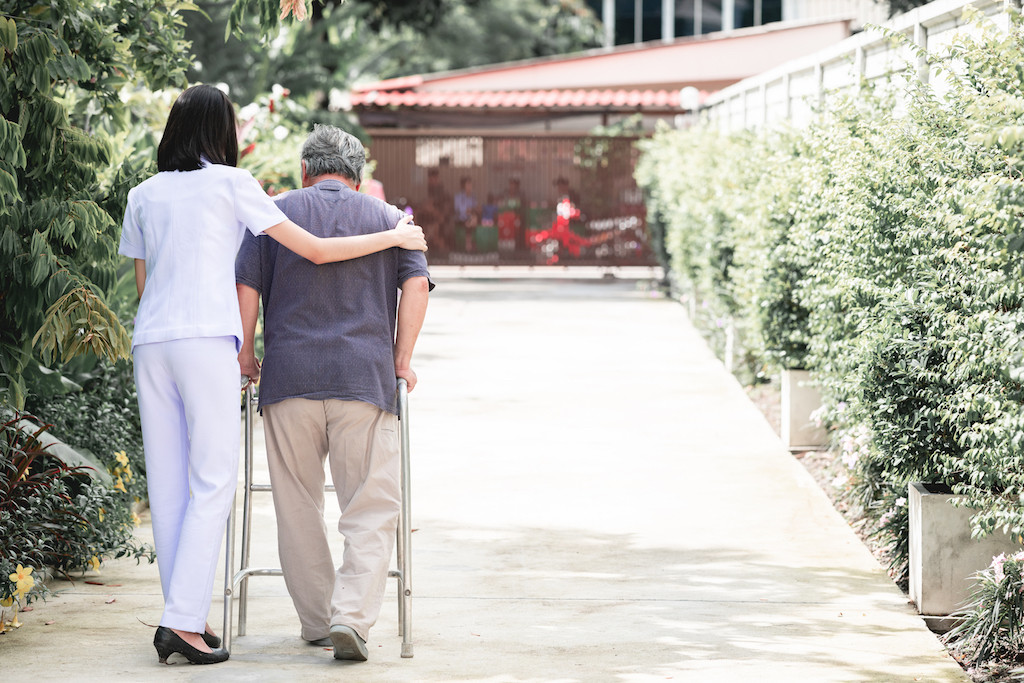Popular Reads
Top Results
Can't find what you're looking for?
View all search resultsPopular Reads
Top Results
Can't find what you're looking for?
View all search resultsEliminate barriers for elderly voters
Based on Indonesian Family Life Survey (IFLS) in 2007 and 2014, the percentage of the elderly who did not vote increased in all national elections for the president. Difficulties in daily activities were found to have played a significant role.
Change text size
Gift Premium Articles
to Anyone
T
he General Election Commission (KPU) has made efforts to maximize voter turnout rate by providing ease especially for people with disabilities, the elderly and pregnant women. Polling station committees must consider several criteria regulated by the KPU; for instance they should not be on a hill, or be of rocky or sandy terrain and should have stairs where necessary. Among other technicalities, the table height of the polling booth must also be in the range of 75-100 centimeters.
Election organizers may prioritize those with disabilities, the elderly and pregnant women in the queue of voters. Local election committees also stand ready to facilitate voting for those who are physically restricted to visit the voting location.
But how about the elderly who are not sick but too weak to go to their nearest polling station? Firstly, they are not categorized as those who must be facilitated as they are not sick; they or their family might be reluctant to ask for the facility. Therefore they are neither explicitly entitled to the right to be accompanied while casting their vote. However as many of the elderly’s physical functioning has declined, they should have the right to be accompanied in casting their vote, which should remain discreet.
Based on Indonesian Family Life Survey (IFLS) in 2007 and 2014, the percentage of the elderly who did not vote increased in all national elections for the president. Difficulties in daily activities were found to have played a significant role. The surveyed elderly were revealed to include those experienced difficulties in daily routines such as dressing, standing and going to the toilet without help and walking at least 1 km with little help. Despite other possible factors of lower elderly turnout, statistics suggest the difficulties in daily routines must be taken into account.
In Surakarta, Central Java, KPU volunteers conducted briefing for 55 elderly people at a home for the elderly in early April. One volunteer stated the elderly expressed enthusiasm but that they needed more intense briefing.
Data of the IFLS also revealed that the educated among the elderly were more likely to vote in national elections. Meanwhile one-third of them had never enrolled in formal education; under 8 percent had entered senior high school whereas only 4 percent had ever studied in college. This means briefing the elderly, similar perhaps to the bulk of the population, should be as uncomplicated as possible. Family members should be involved to be able to brief their elders.
According to Statistics Indonesia (BPS) 23.4 million or around 8.97 percent of Indonesia’s population were aged 60 and above in 2017, who have now likely increased. All stakeholders, along with family and household members should assist the elderly on Election Day.
The home visits should include those who may not necessarily be sick but maybe too weak to easily access polling stations and cast their ballot. Additionally, they may need assistance in voting though they are not disabled.
***
The writer is a researcher in the SurveyMETER NGO, who graduated from the Magister program in economics from the Gadjah Mada University (UGM), Yogyakarta.










